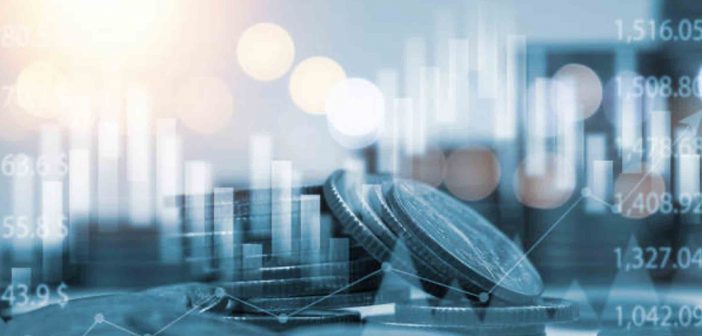Technology has altered the face of our daily living and even those who are not anyhow connected with the finance industry are affected by it one way or another.
Today it is pretty obvious that FinTech is not just a fleeting trend, but rather a new global movement that has already shifted the way we used to interact with financial services. Yet, technology has not influenced the banking sphere only. As a highly dynamic field, FinTech continues to extend to related areas, including online trading. Both pro traders with years of experience and beginners have experienced first-hand countless lucrative opportunities of FinTech.
Increased automation, which means operations can be carried out in a matter of seconds, has become perhaps the game-changer for trading platforms that use different terminals, such as metatrader 4, with algorithmic trading shaping market trends across the world.
How does technology affect trading?
Among the major changes issued by FinTech was the expansion of online financial services among non-experienced customers.
In the past, the trading industry was an activity reserved generally to the experts, making it impossible for outsiders to get into the world of trading without years of experience in the finance field. People did not have access to high-speed Internet and the programs on TV couldn’t provide enough information on stock market basics. So, for the digital natives that grew up with smartphones in their hands, a society where online Forex trading wasn’t that accessible is especially hard to picture, though decades of technological innovations were necessary for this to happen.
FinTech has revolutionized and democratized the trading industry. Now, just about anyone can learn to trade online by opening an account on any preferable platform. Users from almost anywhere on the world map can find a suitable brokerage service, look up (or even create!) some trading strategies, and practice them in a demo or real account, as well as join special trading social networks to get in touch with fellow traders. There are hundreds of forums and blogs out there that discuss global stock market trends, and numerous educational platforms that teach new users to trade. No doubt, social media plays a role too, allowing for the rapid sharing of information and facilitating networking among the trading community.
AI is shaping the future of trading
Most modern trading platforms and algorithms are programmed by human developers. However, with a swift development of machine learning and deep learning, trading brokers will soon be capable of launching their trading algorithms even without human intervention. This global trend towards further automation is expected to accelerate trading transactions to nanoseconds. Of course, traders view AI technologies as the most promising, and would definitely like them to deeply integrate into trading platforms.
Robo-advisors have brought versatility to online trading
As AI gets more sophisticated, FinTech also starts to play a poignant role in risk management when trading online. Although risk is inherent to trading, making loss often unavoidable, new technologies are already able to develop advanced algorithms to help users better analyze the current state of the stock market. In this way, traders will know when they need to buy or sell and when it’s best to wait.
Trading is an activity that can’t be left solely to luck. It goes without saying that the best traders are the informed ones who are fully aware of their financial situation, can interpret the economic context influencing asset prices, and figure out how to invest their money correctly.
Before the age of FinTech, learning to become one of those skilled traders required a long pathway of attempts and failures. Today, FinTech has provided traders with robo-advisors: AI-based programs that ensure automated trading advice through a simple user-friendly interface.
Being absolutely inexpensive, robo-advisors handle complex operations without human help, for example when creating personalized investment portfolios, selecting investments, or harvesting tax-loss. In comparison, traditional financial advisors typically only work with customers who have at least $100k in assets, charge the fees up 2% and are not always available 24/7. Of course, in some cases a human touch can be required, but, mostly, and especially for novice traders, robo-advisors can ease the navigation through the trading process.
In order to make a wise financial decision, a trader has to rely on data analytics. However, many traders still doubt that machines are able to completely replace human intuition. Instead, humans and machines will be seen functioning in-sync, with clients making their trading decisions based on advanced data analysis accomplished by automated advisors.
Cybersecurity has become a top priority
Naming trends that are likely to shape the future of trading, it is important to note the utmost importance of cybersecurity. A trading platform has to be fully secure to withstand data theft attacks. Real-time security monitoring should be one of the default settings of any top-grade trading system.
Cybercrime ranges from phishing scams all the way to full-blown attempts to break into the data stored by trading platforms. All in all, with so much financial data housed electronically, the need for watertight security is uppermost.
Cryptocurrency and trading
The crypto industry has matured over the past years and today crypto enthusiasts are free to use their Bitcoin assets for online trading. Brokers now let their users trade with crypto pairs just like conventional currency ones and fund accounts with cryptocurrency.
Thanks to FinTech, clients can now manage trading accounts as smoothly as they initiate money transfers and the best thing is that financial institutions are not required to be involved in the process. Backed up by the widespread availability of live information assessment, this surely encourages traders to build solid strategies based on their financial whereabouts.
As FinTech continues to expand further on, its influence on trading is expanding as well, so experts anticipate trading volumes to increase even more. Eventually, this will also establish entirely new business models and, contrary to popular belief, automation will not result in fewer jobs in the finance field, but rather lead to a more efficient shift in the allocation of human resources.





14 Comments
Pingback: Olymp Trade Forex Broker, Olymp Trade Review, Olymp Trade Information – lovingcocreation.com
Pingback: How To Trade Forex And Withdraw Money From Exness
Pingback: Is Exness Scam Or Legit Forex Broker? – rosh hair boutique
Pingback: What Are The Bonus Promotions For Exness Mt4 And Mt5 Accounts? – Marek Properties
People did not have access to high-speed Internet and the programs on TV couldn’t provide enough information on stock market basics.
carpet cleaning allentown pa
I like the trading and it is highly recommendable! It is also great to know more techniques and the ability to trade will be developed. Thanks! Jane
Thanks for a very helpful article. https://www.hvaclancaster.com/
Interesting. I never would of thought. In the auto industry our shipping and trading is so old school the internet is barely need. In fact I still keep a ledger in the office and don’t even have a lap top in the Hamilton car mechanic auto garage. So I learned a lot here.
Thanks for making this article so informative. Keep it up! https://www.watersoftenergurus.com/
FinTech has revolutionized and democratized the trading industry. Now, just about anyone can learn to trade online by opening an account on any preferable platform. Users from almost anywhere on the world map can find a suitable brokerage service. Here are the top 4 trends in fintech industry in 2021 that you can read in Fazzaco.
AWESOME POST Lawsuit Alerts
This is really incredible.. cracked drywall repair north Richland hills tx
Speechless… Crazy good… http://www.masonrycontractorsyorkpa
All of this is now possible from the comfort of your own home slope unblocked, through the use of a banking app or by switching to FinTech firms.